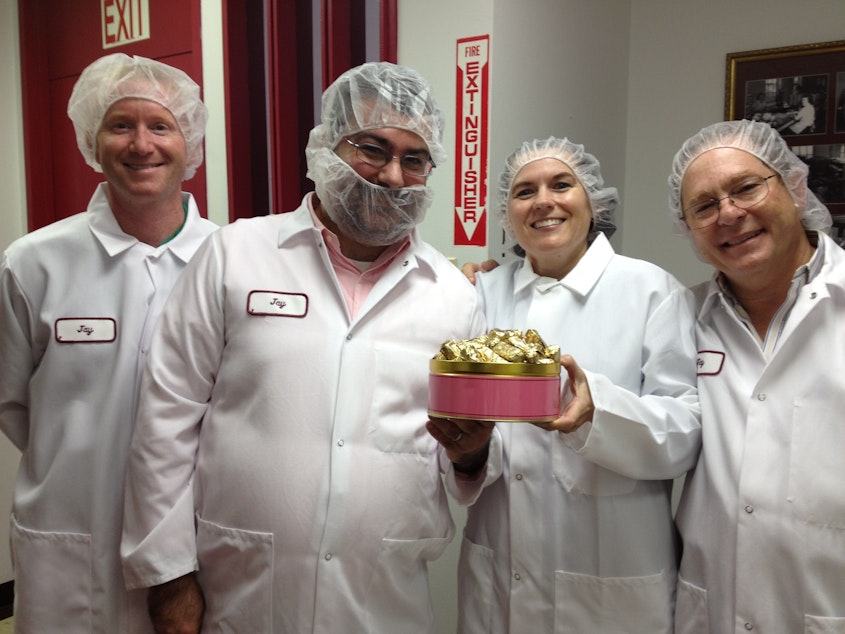Tacoma Company Embarks On Health Makeover

It’s hard enough to stay healthy at work. But imagine working at a candy factory, surrounded by sweet temptations. At Brown and Haley in Tacoma, workers are getting help to change their health habits. The candy maker and other employers in Pierce County are part of a national pilot program.
To kick off the event, the bosses at Brown and Haley are buying lunch — it’s hot dogs, but they’re sneaking in oranges and bananas. No soda. They’re also giving out gift cards to reward people with perfect attendance. They’re using the occasion to motivate people to sign up for health screenings. It’s part employee appreciation, part pep talk. Brown and Haley president Pierson Clair tells workers, “We need to be healthy, and we need to take responsibility for our health. This program is going to help us do that.”
The program Clair is referring to is the National Healthy Worksites Program. Last month, the Centers for Disease Control and Prevention picked Brown and Haley along with 14 local businesses to see if workers can change their unhealthy habits. In fact, Pierce County ranks 26 out of 39 in overall health, according to the Robert Wood Johnson Foundation.
Clair knows changing habits can be hard. He recalls the time when he tried to get workers to quit smoking. “I went to many of them and said, 'I’d like to make your life a little better, from my point of view, and have you stop smoking. And I’d like to give you a financial incentive to do that.' I didn’t have one person take me up on the offer.”
The program is voluntary. Participating employees will go through a health screening to record their current cholesterol, blood pressure and glucose levels. In the coming months, they’ll get visits from a health coach to help them make changes, whether it’s to get more exercise, switch to more healthful foods, or quit smoking.
Sponsored
The CDC’s Jason Lang says wellness programs have worked very well for large corporations. But they want to see if those programs can work in smaller workplaces. Often small businesses don’t have the money to provide that kind of support for their employees. “If you look across the country, it’s small employers, to a much lesser degree are doing these programs.”
Lang says the goal is to share what they learn to other businesses. “[They] can benefit from tools, resources, guidance and activities that they can plug right into their worksites, without having to spend the money on consultants and other people.”
By September next year, when the program ends, the CDC will check back to see if any of the interventions have worked. Lang says they’ll look at the usual gauges — blood pressure, cholesterol, things like that. But they also want to see if there’s any change in people’s attitudes about their health: from apathy to being ready to take action.

